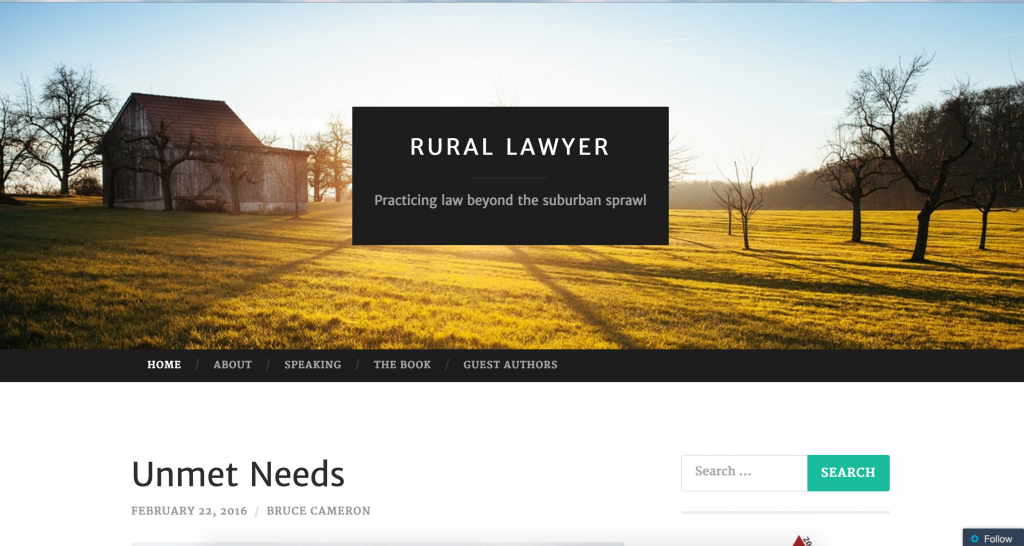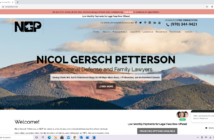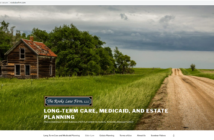Volunteering, personal contact, and varying specialties work for Bruce Cameron, Minnesota general practitioner.
Lawyers looking for a place where the quality of life is good and their services are needed should consider moving to the country, says Bruce Cameron. He makes that case in Becoming a Rural Lawyer, a book he wrote in 2013, and in his sporadically updated Rural Lawyer blog. He has put his teachings to the test for the past eight years in a solo practice “at the edge of suburbia,” just outside of the small city of Rochester, Minnesota. At a time when many solos are struggling to survive, or failing, he has been “modestly successful.”
Cameron had a head start in getting past the first challenge likely to face any newcomer to a rural community: the carpetbagger stigma. He had lived in Rochester for more than a decade in his first career as a research programmer at the Mayo Clinic before he decided to try law as a second career, so he had local connections already. In any event, it is not nearly as daunting a hurdle as it may seem, he insists.
Overcoming The Outsider Stigma
“If you’re willing to go out and be part of the community, it’s a hurdle that’s very easily gotten over,” Cameron says. “Basically, you just have to get out there and volunteer at the annual community cleanup day, the town fair, or community yard sale, or whatever. Be a volunteer fireman. Go to the town council meetings. Small towns run on volunteerism. You don’t necessarily have to be a leader. In fact, they want to know that you’re a good worker before they will accept you as a good leader.”
Cameron, who serves Rochester and a string of smaller towns in the surrounding countryside, also helped introduce himself to the community by running an ad in his first couple of years in practice in a free community magazine. “I chose that over the newspaper because the magazine reaches more people. It’s a giveaway and it’s in practically every café, bar, hotel, doctor’s and dentist’s office in a couple of counties. So it was a very effective way of getting my name out there,” he says.
He has a minimalist web site for his practice, but an online presence does not count for much in a small-town setting, Cameron says. Folks in rural America still expect to see lawyers in person, sitting behind a desk in an actual office. The most effective marketing in such settings, he has found, is “direct personal contact and one-on-one conversations.”
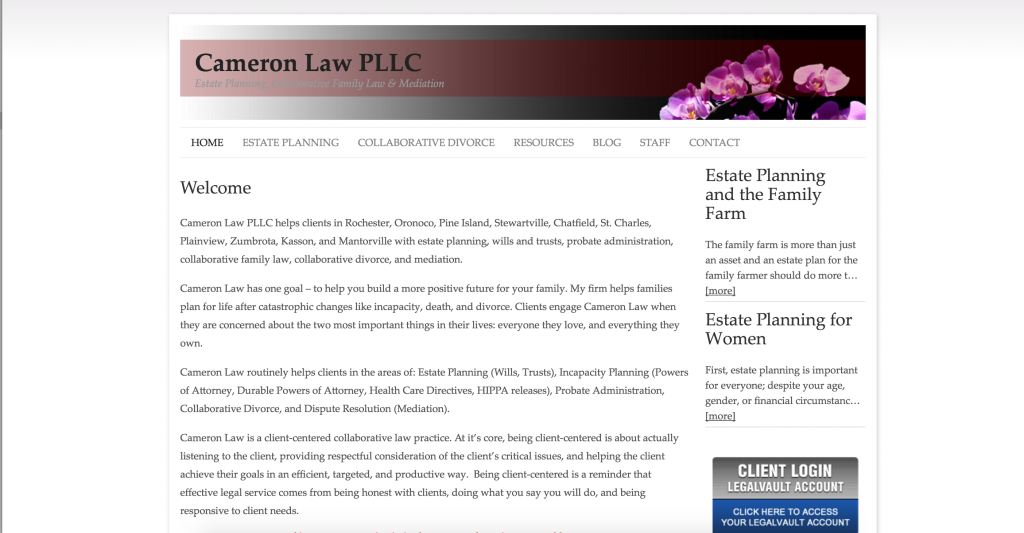
Community Education Seminars
One of the best places he has found to do that is in seminars on small-estate planning that he offers periodically through Rochester’s community education program. The course listings appear in a quarterly flyer. “There was a contact number at the bottom of the flyer, ‘in case you’re interested in teaching something.’ So it was a matter of dialing the number and submitting a proposal,” says Cameron. “They are very careful about who they accept. They do not want business people to use this as advertising, so you have to walk a fine line. You have to provide information that is educational and useful. It has to be marketing-neutral, but you can say, ‘Hey, I’m an attorney and I do this kind of thing.’ I am not specifically marketing myself but I am letting people know why they might need a will and why they might need a lawyer.”
One of his most popular seminars is on estate planning for kids going off to college, Cameron says. Many parents haven’t thought about the implications of their child turning 18, and may be surprised to know that “now that their child has magically become an adult, they don’t have the same kind of access to their child’s medical or financial records. They may need powers of attorney. They may need HIPAA releases,” as required by the Health Insurance Portability and Accountability Act. “That’s always an interesting talk that I give in the fall.”
Cameron adds, “I never have much control over where the classes will be—maybe in a school, maybe in a library–or who will show up, but I have found it to be an effective way to reach the community.”
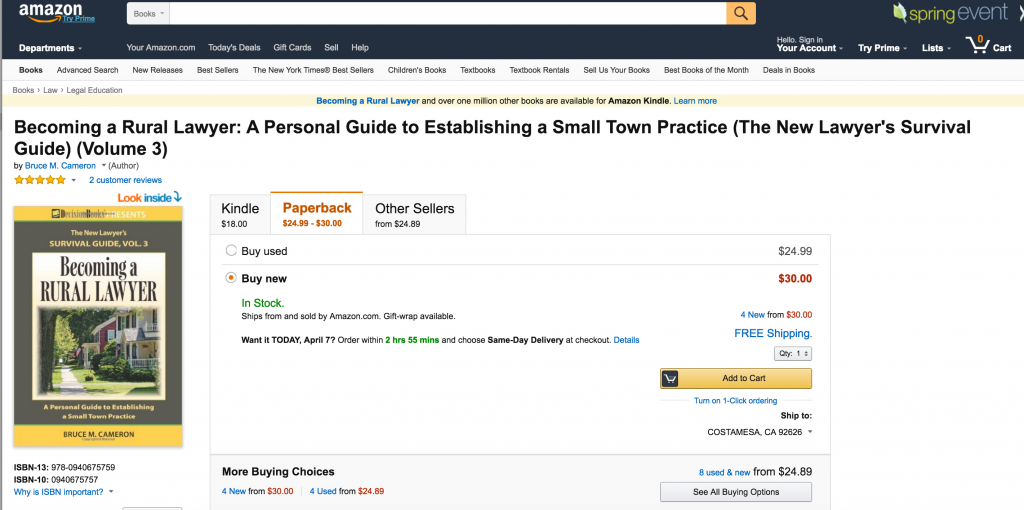
Free Consultations Win Goodwill
Cameron has found that another highly effective way to win good will and gain clients is to offer an initial, free 30-minute consultation, with an option to extend the session in exchange for a charitable contribution. It is an idea he picked up from another attorney.
“l tell people I will talk to them for up to a couple of hours for a small fee that they won’t pay me. Instead, they’ll write a check to a local charity and I’ll send it in. So it’s free on my side but they’re getting the idea that my time is valuable, and there is a cost to it, and this is how an attorney-client relationship works,” Cameron explains.
“I find that it is a very effective way to reach out to the community in a very indirect fashion.” The consultation session, he adds, “is also enough time for me to tell if they don’t have a problem, or if they need an attorney but their case is just not a good fit for me, or if it is a matter I can handle.”
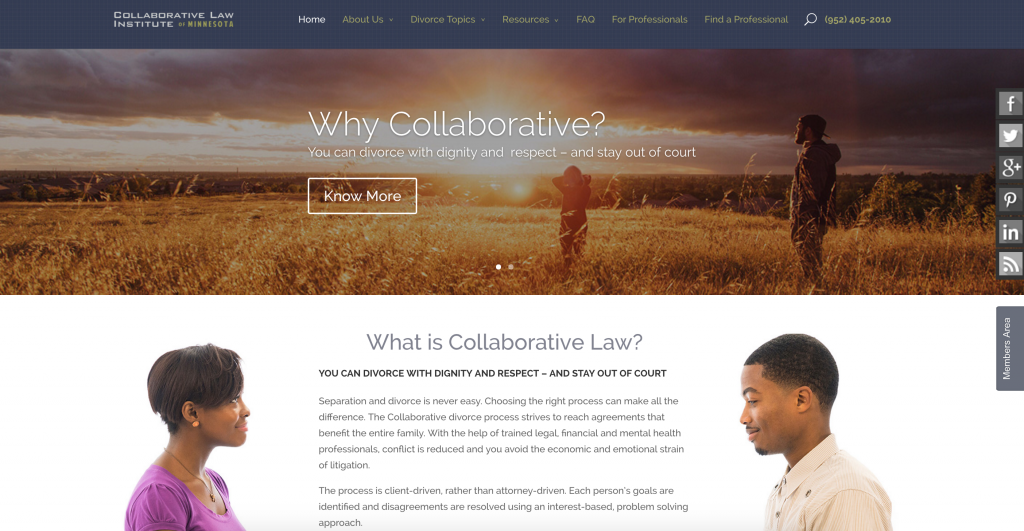
In his family law cases, Cameron follows a collaborative approach, which emphasizes mutually acceptable, negotiated solutions to problems. “I think that resonates with people in small towns because they understand that they will still have interactions with the other party. In a small town, you can’t set things up where someone will never be seen again.” It is not an approach that works for all clients. If the parties are too embittered to collaborate, or too far apart in their demands, “I will refer them out to other attorneys,” Cameron says.
In another throwback to the small-town ways of days gone by, he does house calls, Cameron adds.

Flexibility Is the Key to Success
In his eight years in practice among the small towns of south central Minnesota, Cameron has dipped into a wide array of practice areas in addition to estate planning and collaborative family law. That variability comes with the territory. In a rural law practice, “you have to be a general specialist,” Cameron says. “You have a core set of things you do but you also need to be flexible because you will be switching. You might be doing a lot of DUIs for a while, then you may be doing a lot of real estate work, before moving on to something else.”
Several years ago, wind-power firms came to Minnesota to offer deals to rural landowners willing to put giant turbines on their property. Cameron quickly boned up on the legal issues at stake, and got a lot of work from the wind boom. “I was looking at wind-power leases and boundary line issues and all sorts of other things that go along with that. That lasted for a while before settling down. Then you have to be ready when something else pops up. The nice thing is, it generally comes back to where I started, with estate planning and family law.”
If you want to be a small-town lawyer, Cameron adds, “You have to be willing to design your practice to be flexible because your practice is going to evolve as the town grows or shrinks or changes.”

